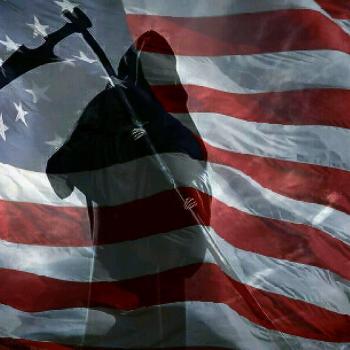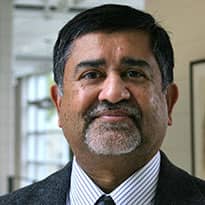The U.S. State Department and the U.S. Commission on International Religious Freedom submit annual reports evaluating conditions in the nations of the world regarding the citizens of those countries and their ability to profess and practice their faiths. Then there are myriad non-governmental organizations and activist groups, including the Hindu American Foundation, of which I am an executive council member, publishing their own reports. Such a massive effort of looking into others' internal matters is not undertaken by any other country. The U.S. is in many ways, the world's self-proclaimed policeman, seeking to keep world order. Whether it is right or wrong is not the focus of this essay, but instead we can argue that based on what the State Department's latest report says about religious freedom in India, the report and the exercise is flawed, myopic, and blinkered.
These exercises minding others' businesses should be carefully evaluated and critiqued so that we can understand why we wish to pry into others' lives and to claim for ourselves the ability and the right to do so. A colonial, imperialist hangover, one might say, as well as the Christian's wish to be his/her brother's/sister's keeper. The White Man's Burden may indeed be heavy and self-imposed, but how that burden is carried and is disposed of is no longer just the white man's concern but my concern too, and the concern of many like me --not Christian, not white, and not burdened with minding others' businesses.
Scholars and academics of the West have spent enormous effort at "understanding" and "describing" the other. Some have been sympathetic, some have embraced the other, but most have been very critical. As Rajiv Malhotra says in his recent article about Oprah Winfrey's visit to India and what she said about India, "the history of the West is replete with assertions of supremacy over the non-West on account of religious, racial, cultural and economic factors." Those assertions and evaluations have led to the reshaping of the world to imitate and mimic the West, at tremendous cost. Just to take the example of the ongoing Olympic games, one wonders why the rest of the world should play the sports invented and organized by Western countries, building expensive stadia, training athletes at enormous cost, and sending them to compete with others in a nationalistic rivalry replete with jingoistic slogans, and supremacist attitudes!
Malhotra refers to Andrew Rotter's work related to American policy toward South Asia during the Cold War, and Rotter's finding that American officials saw Indians as difficult to comprehend, and ". . . grotesque, smelly, disorderly, unsanitary, promiscuous and primitive." To some extent, and despite the reshaping of the world after the Cold War and India's newfound technical and technological savvy and its abilities to sell goods and services to the West, those notions about India still prevail, one can argue. Or, given the fact that the West is in some retreat, its officials and academics can still use their powers to continue to bring pressure on those developing countries and slow them as they gain upon them. One can see the U.S. official reports on religious freedoms and human rights as an example of pushing the "other" on to his/her back feet.
So, let us look at the latest State Department report on religious freedoms and what the department says about India. Here are excerpts from the report:
- During meetings with senior government officials, as well as state and local officials, and religious community leaders, senior U.S. officials discussed religious freedom issues, including reports of harassment of minority groups and missionaries, violence against religious minorities in Karnataka, and the 2002 communal riots in Gujarat.
- Despite the national government's continued rejection of Hindutva (Hindu nationalism), a few state and local governments continue to be influenced by Hindutva. During the year, some states passed laws based on Hindu religious beliefs that restrict the religious freedom of minority groups. For example, on September 29, Gujarat passed a bill that prohibits cow slaughter and requires a permit for transporting cows. The law mandates a seven-year jail term for anyone directly or indirectly involved in the slaughter, storage, transportation, or sale of cow or cow products. Critics argue that such laws deprive Muslims, Christians, and lower castes of livelihoods, a source of nutrition, and the right not to observe Hindu religious restrictions.
- There are active "anticonversion" laws in five of the twenty-eight states: Gujarat, Odisha (formerly Orissa), Chhattisgarh, Madhya Pradesh, and Himachal Pradesh. Although Arunachal Pradesh enacted its law in 1978, the government has yet to frame the rules needed for enforcement. Gujarat has a Freedom of Religion Act (2003) and Rules (2008) that proscribe religious conversions by means of allurement, force, or fraud.
- In 2007 Andhra Pradesh enacted the Propagation of Other Religions in the Places of Worship or Prayer (Prohibition) Law. The law allows the state to prohibit the propagation of one religion near a place of worship or prayer of another religion. Thus far, the state has identified only Hindu religious sites for this protection.





